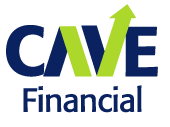Top tips to help you create financial freedom: Part Four
Mon April 8th 2024
For the majority of us, our main source of income is derived from paid employment. Therefore, it could be argued that wages or salary is one of, if not the most, important component in achieving financial wellbeing.
Today we look at ways to maximise what you earn, but also consider the impact of losing that income and how to protect what you have spent so many years working towards.
Work wisely! There are many ways you can use your employment status as a way of boosting your financial wellbeing. Whether that be running a side business, making use of employer benefits, or asking for a pay rise. Ladies take note! Research has shown that women are a lot less likely to negotiate a pay rise than men and are also less inclined to self-promote their worth and value in the workplace.
Generally, a result of working hard is the lifestyle we lead. We enjoy taking time off to relax on holiday with our family or friends. Many of us own homes, or at least have assets we have worked hard to acquire. Taking care of these is important, but even more so is the need to protect what made it all possible in the first place – your ability to earn an income.
Check out our top tips for building your assets and then protecting what you've earnt, and don't forget what you learnt in parts one ,two, and three which can be found here if you missed them.
Work Wisely!
45: Start your own business when you're young
Even if it's not a success, running your own business will teach you far more about life and money than simply working for someone else. You'll gain skills and knowledge that will stand you in good stead throughout your financial life.
46: Get paid what you're worth
This is a hard one when you're just starting out, but after a few years in your job, make it a priority to be paid what you're worth. This means looking at the market and finding out what others in your position are paid, then negotiating for a pay rise. Statistically, we know women in particular do this less than they should.
47: Make employee benefits work for you
Employers want to keep employees around. They offer free health insurance, subsidised retirement savings, free car parking or subsidised transport and even discount cards for various businesses. But these benefits aren't worth anything if you don't use them. Make sure you know what your benefits are, and how to access them.
48: Do more, earn more
Obviously, income is a huge factor when it comes to financial wellness. So growing your income potential is a good way to improve your situation. That might mean taking on more responsibility at work, running a small business on the side, or taking courses to improve your knowledge
Take Care of your Assets!
49: Insurance is an investment
Insurance seems like a boring way to spend money, but it's actually an investment in your future. It's worth having insurance for your home, contents, car, and health if you can afford it. Depending on your family and financial situation, you should also invest in life insurance and income protection.
50: Keep investing and insurance separate
Some types of life insurance are sold as investments – you build up cash over a lifetime, which you can use later on. But these policies tend to have very high premiums, and extra charges on top of that. It's better to invest elsewhere, and stick to straightforward life insurance to protect your family.
51: Review your insurances regularly.
As your life changes, your insurances should too. Review your insurance regularly to make sure you're well covered without paying too much.
52: Look after your health
Health issues can cost you in medical expenses and time off work. Of course, many health issues aren't preventable, but eating well, doing regular exercise, and limiting things like alcohol and smoking mean you're less likely to get sick. It's also a good idea to get health insurance before you need it – once you're unwell, you're less likely to qualify.
53: Use protection
An up to date will will and/or a trust will help protect your money, property and possessions if you die or separate from a partner.
Interested to know what Insurances cost? Check out our Tools & Resources page where you can get online quotes for Health and Life Insurance.

Need our help?
We're here to answer your questions.
service@cavefinancial.co.nz
09 302 7310
1D Roberta Avenue
Glendowie
Auckland 1071
New Zealand


